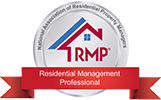Imagine, if you will: you find that perfect place and you are ready to make an offer. Then you see the homeowner’s association dues and they seem high. You wonder, what is included in those HOA dues?
One of the most common questions people ask real estate brokers is: What is included in the HOA dues?
HOA dues are periodic assessments, typically monthly, charged to the owners of common interest development to cover the common area expenses. The dues are the expenses that everybody shares who owns a property in that community.
HOA dues cover expenses broken into five categories:
- Utilities: for most condominiums, that includes water, sewer, trash, and gas. These utilities are usually not on separate meters. Plus common area electricity. These utilities are put together as part of the HOA. Some buildings include internet and few, cable TVs. Not as many do the latter but sometimes, they can negotiate better deals because of it, particularly on high-speed internet.
- Maintenance and repair: these include the common systems and areas shared by the association and include the roof, elevators, plumbing, gates, lighting, paint, carpet, landscaping, and pool maintenance. Also, community rooms, and gyms.
- Staffing and professional service providers: when the community has a concierge, maintenance staff, security personnel, professional management, accountants, or attorneys. They are all paid like part of the homeowner's association dues. Board members are the exception. Some people may think that the board gets paid by the homeowner's association when it's a volunteer job.
- Insurance: a lot of people may not realize that insurance makes up a big portion of a homeowner's association dues. They may be surprised at all the insurance that is part of an HOA. Examples are property insurance, general liability insurance, earthquake insurance, workers compensation insurance. Also, a fidelity bond (in case someone willing to run off with the HOA money), directors' and officers' insurance to protect them from legal issues, and umbrella policies. This insurance does not include the belongings or the liabilities that go with the inside of each unit in the condominium. Each owner will also need their insurance policy, and so will each tenant as well.
- Reserves: money is put aside each month to fund reserves. These funds are set aside for future expenses. Therefore, owners pay years in advance for expected upkeep and improvements to the community without the need for the HOA to issue special assessments. Examples are elevator replacements, new roofs, or new paint jobs in the building.
Every year, a third-party company is called in to do a reserve study. And once every three years the HOA hires services to help make sure that that reserve study is as accurate as possible.
Homeowner’s association dues are kind of like taxes to pay for upkeep on your home and provide you with the level of services that you expect in the community.
On “high-end” properties the HOA dues are more expensive. They have a higher level of upkeep and service level expectation. If the HOA dues are too low, then you may be begging for a problem in the future.
So, if you are looking at buying a condominium, you must look at what is included. How generally healthy the homeowner's association is and help factor that into the purchase evaluation of a property that is part of a homeowner’s association.
It may be a lot, but it is with the help of a professional to guide you through it. It is not a big deal, and we are more than happy to help you here at the Mike Dunfee Group if you have any questions about homeowner’s associations.
Dunfee Real Estate Services, Inc.
DRE # 02026232








